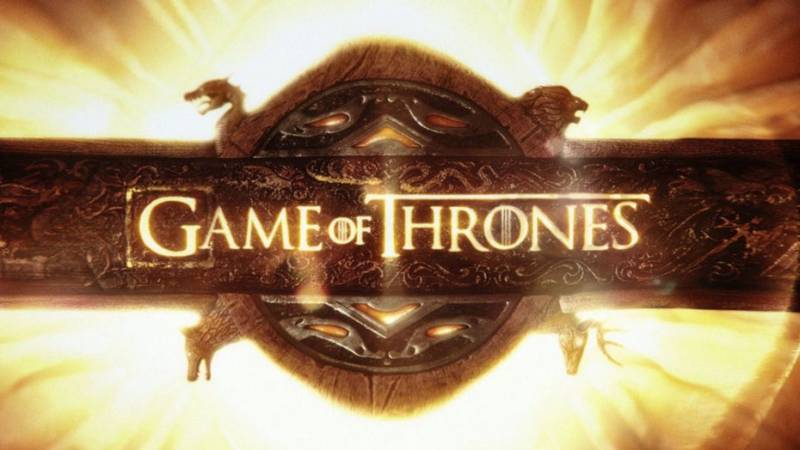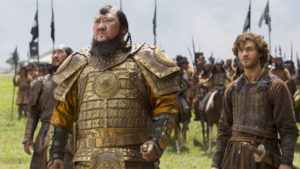
It’s not TV its HBO’s Game Of Thrones. The show has been called a phenomenon, an immense global hit, a huge part of this decade’s pop culture. All these accolades are more than well-deserved but the deepest impact GOT had was on the TV industry itself.

The show not only ushered in the Golden Age of Television but it changed how we viewed the medium. Suddenly everything on the TV was bigger in scope and imagination. Budgets never before imagined were being approved for serials. Since the show’s impact, budgets for dramas have ballooned from $3 million to $10 million, per episode.
Perhaps the boldest thing that GOT did was killing Ned Stark, the face of its first season in the ninth episode. They killed the hero – hero is the person who the audience always expects to survive, no matter the odds, even very few movies have the guts to pull this off. And doing it in TV, where most people come back week after week; only to see the characters that they care about and have grown to love. The sheer audacity of that moment was what truly defined the show as groundbreaking.

“We used to have a different experience for movies and the television business,” said Gary Newman, the recently departed co-chairman of the Fox Television Group. “Now you can feel it melding. I give ‘Thrones’ a lot of credit for that.” From Battle of the Blackwater to Battle of the Bastards, Game of Thrones brought never before seen spectacle to TV. Not to mention DRAGONS.

“‘Thrones’ was the first show that demonstrated you could produce a show with real cinematic scope,” Casey Bloys, the president of programming at HBO said. “That you could think bigger — both in terms of character and drama and in special effects. That it would work, that taking shots and spending real money and putting it on the screen would pay off.”
And it did pay off! Game of Thrones is one of the most watched shows of the last decade (its recent season averaged more than 30 million viewers an episode), and has won more Emmys than any other dramatic series ever.

Everyone, including streaming services like Netflix, Amazon and Hulu have been desperately looking for their own Game of Thrones. Three years after GOT’s debut, Netflix ordered the high budget epic series Marco Polo based on the famous explorer’s life. However, the series was a flop. Amazon’s attempt to bring an ‘epic’ Lord of the Ring version to TV has cost the streaming service more than $200 million and they still don’t have a script.

“It has made everyone say, ‘O.K., where is our ‘Game of Thrones’? Which is the exact wrong way to find your next ‘Game of Thrones,’” said Casey Bloys, the president of programming at HBO. “Just to set out and say ‘Well we’re going to make our next Game of Thrones, we’re going to do a real giant show with a huge budget,’ well that doesn’t allow for all the other things that have to go right for a show to really resonate with a viewer.”
Will there be a next Game of Thrones? Can you catch lightning in a bottle, twice?

The show not only ushered in the Golden Age of Television but it changed how we viewed the medium. Suddenly everything on the TV was bigger in scope and imagination. Budgets never before imagined were being approved for serials. Since the show’s impact, budgets for dramas have ballooned from $3 million to $10 million, per episode.
Perhaps the boldest thing that GOT did was killing Ned Stark, the face of its first season in the ninth episode. They killed the hero – hero is the person who the audience always expects to survive, no matter the odds, even very few movies have the guts to pull this off. And doing it in TV, where most people come back week after week; only to see the characters that they care about and have grown to love. The sheer audacity of that moment was what truly defined the show as groundbreaking.

“We used to have a different experience for movies and the television business,” said Gary Newman, the recently departed co-chairman of the Fox Television Group. “Now you can feel it melding. I give ‘Thrones’ a lot of credit for that.” From Battle of the Blackwater to Battle of the Bastards, Game of Thrones brought never before seen spectacle to TV. Not to mention DRAGONS.

“‘Thrones’ was the first show that demonstrated you could produce a show with real cinematic scope,” Casey Bloys, the president of programming at HBO said. “That you could think bigger — both in terms of character and drama and in special effects. That it would work, that taking shots and spending real money and putting it on the screen would pay off.”
And it did pay off! Game of Thrones is one of the most watched shows of the last decade (its recent season averaged more than 30 million viewers an episode), and has won more Emmys than any other dramatic series ever.

Everyone, including streaming services like Netflix, Amazon and Hulu have been desperately looking for their own Game of Thrones. Three years after GOT’s debut, Netflix ordered the high budget epic series Marco Polo based on the famous explorer’s life. However, the series was a flop. Amazon’s attempt to bring an ‘epic’ Lord of the Ring version to TV has cost the streaming service more than $200 million and they still don’t have a script.

“It has made everyone say, ‘O.K., where is our ‘Game of Thrones’? Which is the exact wrong way to find your next ‘Game of Thrones,’” said Casey Bloys, the president of programming at HBO. “Just to set out and say ‘Well we’re going to make our next Game of Thrones, we’re going to do a real giant show with a huge budget,’ well that doesn’t allow for all the other things that have to go right for a show to really resonate with a viewer.”
Will there be a next Game of Thrones? Can you catch lightning in a bottle, twice?
